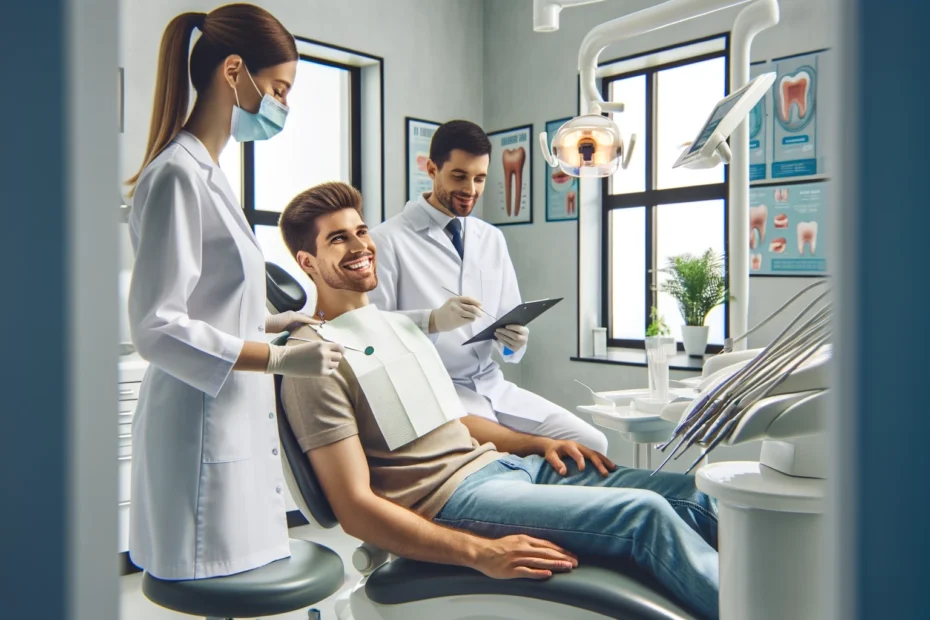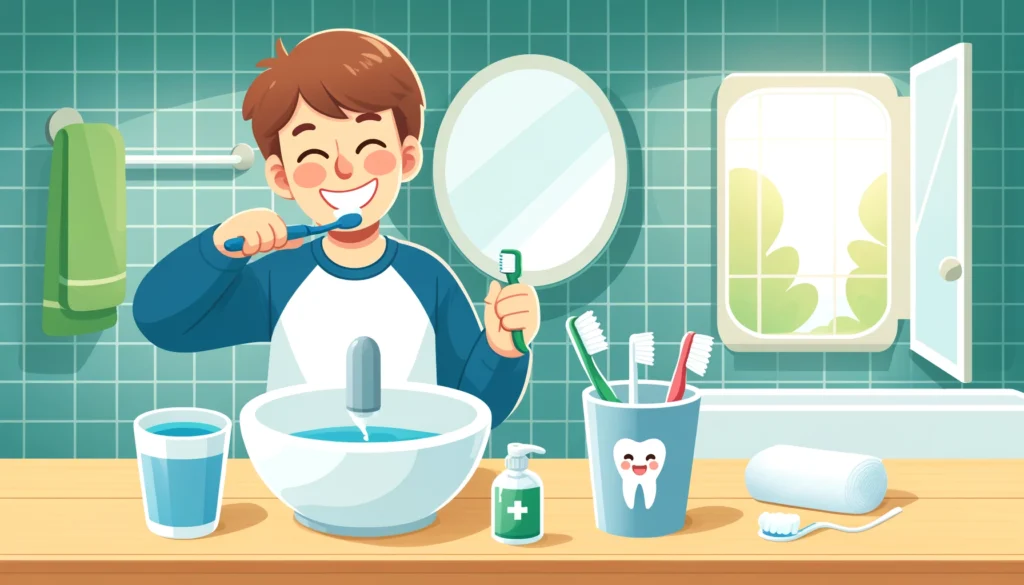Oral health is a crucial component of overall wellness, influencing not only digestion but also self-esteem and social interactions. Poor oral hygiene can lead to a variety of dental and medical problems, such as infection, gum disease, bone loss, heart disease, strokes, and more. Therefore, maintaining optimal oral health is essential for overall well-being.
Welcome to your ultimate guide on achieving and maintaining a dazzling, healthy smile. From brushing techniques that make a difference to breakthrough dental treatments, we’ll provide top tips and essential practices that promise to transform your oral care routine. Discover how to keep your teeth pristine, ensuring your smile stays as vibrant as your spirit!
Addressing Common Oral Health Issues
Regular fluoride treatments and sealants can prevent decay. If cavities occur, fillings, crowns, or inlays are used to restore tooth integrity. Early stages of gum disease can often be reversed with improved hygiene and regular cleanings. Advanced cases may require more intensive treatments like scaling, root planing, or periodontal surgery.
Solutions for sensitive teeth
For those with sensitive teeth, using specialized toothpaste, avoiding harsh brushing techniques, and seeking fluoride treatments can provide relief.
Daily Oral Hygiene Practices
Maintaining good oral hygiene is essential for overall health. Daily oral hygiene practices include brushing your teeth twice daily, flossing between teeth to remove plaque and debris, and rinsing with an antiseptic mouthwash
Brushing techniques and toothbrush selection
Effective brushing must be performed at least twice a day using a fluoride toothpaste and a soft-bristled toothbrush. For individuals with wider gaps between their teeth or those with bridges or braces, interdental brushes and soft picks can be more effective than traditional floss.
These tools are designed to clean between the teeth where a regular toothbrush might not reach. They come in various sizes to fit different space widths, ensuring you can gently remove plaque and debris without causing gum damage. Employ gentle, circular motions to remove plaque without eroding tooth enamel or harming gums. Whether manual or electric, the choice of toothbrush should align with ease of use and effectiveness in reaching all areas of the mouth.
The role of flossing in gum health
Daily flossing helps remove debris and plaque that a toothbrush cannot reach.
- This interdental cleaning is crucial for preventing the buildup of plaque, which can lead to tartar, a major cause of gum disease.
- Use a gentle sawing motion to guide the floss between your teeth without snapping it harshly into the gums.
The benefits of mouthwash
Incorporating mouthwash into one’s daily oral hygiene regimen can provide a final rinse of residual particles, reduce oral bacteria, and deliver fluoride to areas not easily reached by a toothbrush. Choose a therapeutic mouthwash over cosmetic ones to obtain these benefits.
Tongue Cleaning
An often overlooked aspect of daily oral hygiene is tongue cleaning.
- The tongue can harbor bacteria and food particles, contributing to bad breath and dental decay.
- As part of your daily routine, gently clean the surface of the tongue using a tongue scraper or the bristles of your toothbrush.
- This not only helps reduce the overall bacterial load in the mouth but also improves breath freshness.
Proper Rinsing After Meals
While brushing your teeth after every meal may not always be possible, rinsing your mouth with water can help reduce food particles and sugars that cling to the teeth and gums.
This simple act helps maintain a cleaner oral environment and can lessen the impact of acids produced by bacteria in plaque, which can lead to tooth decay.
Using Dental Sealants
Dental sealants are another preventive measure that can be considered, especially for children and teenagers. A sealant is a thin, protective coating applied to the chewing surfaces of the back teeth (molars) most prone to decay. This coating protects the enamel from plaque and acids, effectively preventing cavities.
Dietary Choices Impacting Oral Health
Sugary foods and acidic beverages should be consumed sparingly because they can erode tooth enamel and foster plaque formation. Sticky candies and frequent snacking can also increase the risk of dental caries.
A balanced diet rich in calcium, phosphorus, vitamin D, and vitamin C can help strengthen tooth enamel and promote gum health. Dairy products, leafy greens, nuts, and lean proteins are excellent sources of these nutrients.
Professional Care and Regular Check-ups
- Biannual dental check-ups are crucial for maintaining oral health. These visits allow for the early detection of potential issues and provide a professional cleaning that may remove tartar and stains.
- During a check-up, expect a thorough cleaning, a detailed examination of your teeth, gums, and mouth, and possibly X-rays to diagnose underlying issues. Your dentist may also provide tailored advice on enhancing your oral hygiene routine.
- Additionally, regular check-ups can help identify signs of oral cancer, which is critical for early intervention and treatment. Your dentist will look for any abnormal changes in your mouth, including sores, irregular tissue changes, or lumps.
Oral Health Throughout Life
Introducing oral hygiene early, using appropriate fluoride treatments, and establishing regular dental check-ups can help instill lifelong dental health habits.
- Oral care during pregnancy: Hormonal changes during pregnancy can increase the risk of periodontal disease and gingivitis. Pregnant women should continue regular dental visits and consult their dentist on oral care strategies during pregnancy.
- Oral health for the elderly: Aging individuals are more prone to dental decay, gum disease, and other mouth infections. Maintaining a routine of professional care and effective daily oral hygiene is critical.
A Quick Lookup at Tips for Oral Health Care
- Regular Brushing: Brush twice daily for two minutes with fluoride toothpaste using a soft-bristled toothbrush, employing gentle, circular motions to avoid damaging gums and enamel.
- Effective Flossing: Daily flossing removes plaque and food particles between the teeth and under the gumline, preventing tartar buildup and gum disease.
- Use of Mouthwash: Incorporate therapeutic mouthwash into your routine to rinse away residual particles, reduce bacteria, and deliver fluoride to hard-to-reach areas.
- Tongue Cleaning: Clean the tongue daily with a scraper or toothbrush to remove bacteria and improve breath freshness.
- Interdental Cleaning Tools: Use interdental brushes or soft picks for cleaning between teeth, especially effective for those with braces, bridges, or larger gaps.
- Rinsing After Meals: Rinse with water after meals to wash away food particles and sugars, reducing the risk of plaque and decay.
- Dental Sealants: Consider applying dental sealants on the chewing surfaces of molars to protect against decay, especially for children and teenagers.
- Replace Toothbrush Regularly: Change your toothbrush or electric toothbrush head every three to four months to maintain brushing effectiveness and prevent bacterial buildup.
Conclusion
Maintaining excellent oral health is a multifaceted approach that encompasses proper daily care, regular professional check-ups, and proactive dietary and lifestyle choices. By adhering to these guidelines, individuals can ensure healthier teeth and gums and, by extension, a better quality of life. Engage regularly with dental care professionals and stay informed about new advancements to keep your smile bright and healthy.

Dr. Orion Johnson is a dedicated and compassionate dentist committed to providing exceptional dental care to his patients.Dr. Johnson obtained his Doctor of Dental Surgery (DDS) degree from a prestigious dental school, where he excelled academically and clinically. He is licensed to practice dentistry and stays updated with the technology through continuing education and training.


